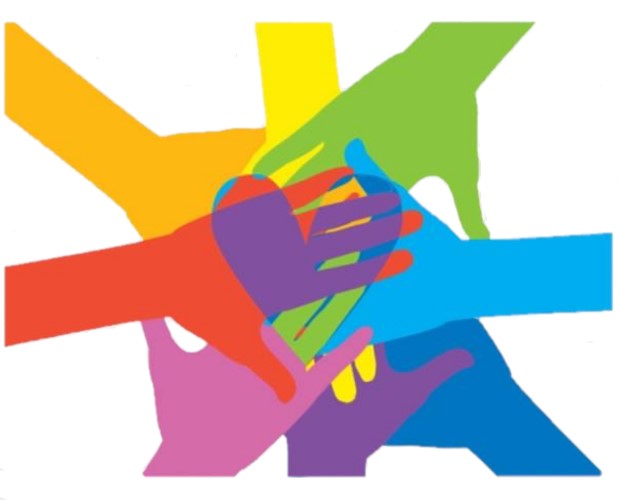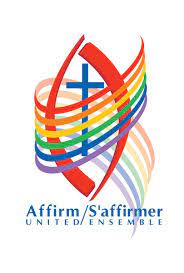Affirming Ministry
Affirming Vision Statement
Grace United Church is committed to living out all of our core values affirming
all of God’s children, embracing people of every age or stage of life,
race or ethnicity, Indigeneity or settler ancestry, spiritual beliefs,
culture, family configuration, gender, gender identity, gender expression,
sexual orientation, physical and mental abilities or health,
socioeconomic circumstances, and life experiences
and who will be encouraged to participate fully in all aspects
of the life and work of our ministry, thereby enriching us all.
Read about Grace’s Celebration of becoming at Affirming Church.
To learn more about the Affirming Committee look for someone wearing this button on Sunday morning
If you would like to contact us please use this email: EAC@GraceUnitedChurchBurlington.com
Grace United Church, Burlington, votes to be a 2SLGBTQIA+ affirming church
BURLINGTON, ON, October 29, 2023 – Grace United Church, one of Burlington’s United Church congregations, today voted overwhelmingly to be an affirming church, celebrating and lifting up the gifts of its 2Spirit, Lesbian, Gay, Bisexual, Transgender, Queer, Questioning, Intersex, and Asexual (2SLGBTQIA+) members and those of the wider community.
“While Grace United Church has understood itself to be welcoming right from its beginning, we needed to learn that ‘welcoming’ just isn’t enough. We know that Christian churches have been, and continue to be, at the forefront of condemning folks who are 2Spirit or LGBTQIA+. It was important to us to say publicly, intentionally, and explicitly that we celebrate and affirm ALL God’s children,” says the Rev. Richard Bott, Grace United Church’s lead minister, “Grace United Church was helped in our exploration by PFLAG Halton, by Affirm United/S’affirmer Ensemble, and by the work that The United Church of Canada – especially our members and leaders who are queer – have done for 2S LGBTQIA+ affirmation, for more than 25 years.”
This decision means that Grace United Church is publicly committed to living out all of our core values: affirming all of God’s children, embracing people of every age or stage of life, race or ethnicity, Indigeneity or settler ancestry, spiritual beliefs, culture, family configuration, gender, gender identity, gender expression, sexual orientation, physical and mental abilities or health, socioeconomic circumstances, and life experiences; and will be encouraged to participate fully in all aspects of the life, work, and ministry of Grace United Church.
Grace United Church, Burlington joins with over 200 other United Church communities of faith who are part of Affirm United/S’affirmer Ensemble – a group who work for the full inclusion of people of all gender identities and sexual orientation in The United Church of Canada and in society. In Burlington, Grace United Church joins Port Nelson United Church and Burlington Baptist Church as Affirming congregations in the community.
A worship service celebrating this decision will take place on January 28, 2024.
For more information, please email minister@GraceUnitedChurchBurlington.com, or contact Richard Bott at 905.335.0090.
To read about Grace’s journey to becoming an Affirming church click here.


